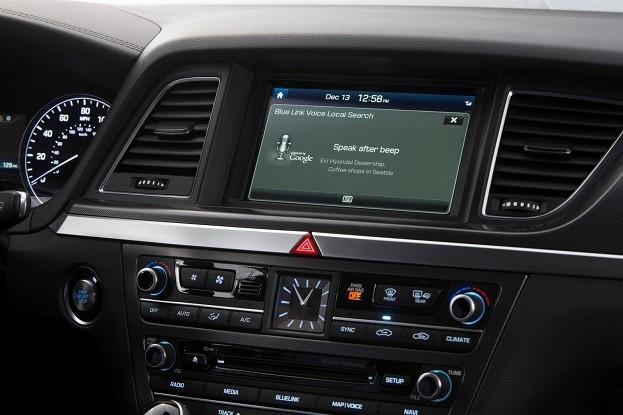2014 CES show: Google Android and major automakers form alliances
Although all technologies and high-tech navigation systems are integrated, the car itself is just beginning to erode the surface of our interconnected world. A competition for some applications that many of us naturally use every day is now being implemented.
Becoming comfortable with the operations of handheld devices after more than a decade of innovations, the relatively young existence of automotive mobile computing is still being shaped by technologies such as Ford SYNC and Toyota‘s Entune.
Heading into the 2014 CES, rumors circulated that Audi was planning to create future MMI infotainment suites based on the Google Android operating system architecture. On Monday, the speculation surrounding Audi was confirmed in a presentation on a much grander scale than originally thought.
In addition to Audi adopting the Android platform, a multi-partner collaboration that also involves automakers Hyundai, Honda, and General Motors was part of a new global alliance towards developing high automotive technology. Google and computer component company Nvidia is also part of what is called the Open Automotive Alliance (OAA).
The formation of the OAA boasts the opportunity to bring the latest automotive mobile computing technology to the marketplace quicker. The openness and customization available through the Android operating system should also grant automakers a chance to maintain their own identity on the equipment presented by specific brands or even vehicles. In the case of Audi and General Motors, which are planning the rollout of 4G LTE connectivity to a select number of their 2015 automobiles, the advantages presented with Android should become apparent quickly.
This news of the OAA could also prove momentous for app developers. The use of an Android-based platform should give developers of new programs is common template working almost insta
ntly across handheld and automotive-related devices.
It may appear unprecedented that four major auto companies have created an alliance in creating a standardized operating system platform. The truth is many car brands already use a similar infotainment operating system that is largely unknown by common consumers. QNX Neutrino has served as the basis for many forms of infotainment technology. Interestingly enough,
General Motors’ OnStar
and Audi’s current MMI uses a QNX based platform.
Another competitor in the emerging automotive infotainment landscape has been Microsoft popularly behind Ford’s SYNC range of in-car technology. Microsoft’s expansion into automotive infotainment has recently suffered a setback when client Kia chose an Android operating system as the basis for their UVO infotainment console.
Representative belonging to all the OAA partners presented their support for this CES 2014 announcement. Sundar Pichai, the Senior Vice President of Android, Chrome, and Apps at Google, stated, “The expansion of the Android platform into automotive will allow our industry partners to more easily integrate mobile technology into cars and offer drivers a familiar, seamless experience so they can focus on the road.”
Quipping that futuristic cars that only existed in dreams will now become a reality, Jen-Hsun Huang, president and chief executive officer, NVIDIA, said, “The OAA will enable the car industry to bring these amazing cars to market faster.”
The first cars to include Google’s Android technology will debut this year. The OAA will definitely provide a significant competition to the far-reaching QNX and Microsoft operating systems in the realm of mobile vehicle technology.
Sources of information and pictures: Audi AG, General Motors, GNX Software Systems Co., Ltd., Hyundai American Motors, Nvidia
-
Latest
 Aston Martin reimagines racing legend with CC100 Speedster
Aston Martin reimagines racing legend with CC100 SpeedsterIn the past few months, car manufacturers have provided us with some excellent new high-performance machines. The ground space of Detroit and Geneva presents such a beautiful scene of four wheels, pro...
-
Next
 2012 Suzuki Grand Vitara Review-Ultimate Adventure Edition
2012 Suzuki Grand Vitara Review-Ultimate Adventure EditionWhen I first discovered that my next test car was the 2012 Suzuki Grand Vitara Ultimate Adventure Edition, I had to admit that my pulse did not increase. Since the chassis and power system are a bit l...
Popular Articles
- Car buyers willing to redouble their efforts to buy a car
- Hyundai Canada announces adjustment of its marketing department
- Mercedes-Benz Canada announces comprehensive Mercedes-EQ charging strategy
- GM extends OnStar automotive insights to non-GM
- Kia Canada enhances buyer knowledge at new electric vehicle experience center in Vancouver
- Mitsubishi Motors launches digital showroom
